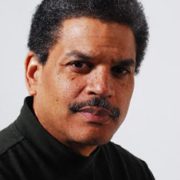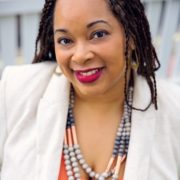Angela Flournoy in The Nation
Brand Yeezy
To what extent can Kanye West continue to foreground the commercial components that make his art possible before we no longer consider him an artist at all?
What could we possibly not know about Kanye West? He has rapped, tweeted, blogged, and ranted about his feelings for years. His wife’s television show is dedicated to “keeping up” with her life. And yet the sweeping constellation of facts about Kanye contributes more to obscurity than to clarity. What had been missing, before 2013, was a specific piece of rhetoric, some overarching ethos to help contextualize the albums, videos, apparel, and media frenzies he creates. What’s still missing is comprehension. With every appearance, Kanye makes an appeal for us to understand something about him. It seems that he needs us to, desperately.
In 2013, West sat for a handful of long interviews with radio and television outlets, ostensibly in support of his album Yeezus. In 2015, he again agreed to do interviews, this time to promote his new shoe and clothing lines. Outside of his music, these conversations granted us the most access to West’s thoughts during those years. (There was also, of course, the occasional Twitter proclamation and the grainy footage of him haranguing audiences while wearing a designer mask.) Video clips from the interviews went viral, spawning scores of “Kanye rant” memes and speculations about his mental health. Some of his fans created YouTube compilations of the most fortifying quotes delivered therein. “This is just an educational video to show the true inspirational words that Kanye West has for the world,” one fan explains. Such is the dichotomy of West as a public figure: The same remarks that spurred the president to call him a jackass may have inspired at least one young black woman to follow her dreams.
Read the rest of the article here: Brand Yeezy










